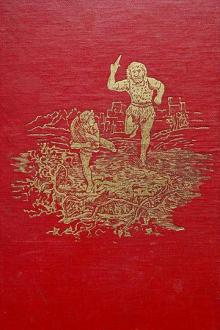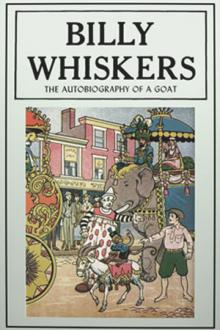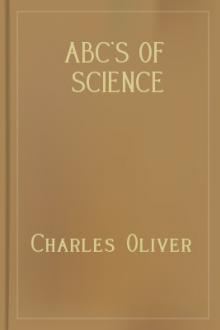The Red Fairy Book by Andrew Lang (interesting novels to read .txt) 📕

Read free book «The Red Fairy Book by Andrew Lang (interesting novels to read .txt) 📕» - read online or download for free at americanlibrarybooks.com
- Author: Andrew Lang
- Performer: -
Read book online «The Red Fairy Book by Andrew Lang (interesting novels to read .txt) 📕». Author - Andrew Lang
separated from him. Each of them turned her palace into an egg
—for they were all enchantresses—and they taught him how to
turn the eggs into palaces, and back again, and they handed over
the eggs to him. And then they all went to the place from which
they had to be hoisted into the upper world. And when they came
to where the rope was, the Prince took hold of it and made the
maidens fast to it. Then he jerked away at the rope and his
brothers began to haul it up. And when they had hauled it up,
and had set eyes on the wondrous maidens, they went aside and
said: `Let’s lower the rope, pull our brother part of the way up,
and then cut the rope. Perhaps he’ll be killed; but then if he isn’t,
he’ll never give us these beauties as wives.’
So when they had agreed on this, they lowered the rope. But
their brother was no fool; he guessed what they were at, so he
fastened the rope to a stone, and then gave it a pull. His brothers
hoisted the stone to a great height, and then cut the rope. Down
fell the stone and broke in pieces; the Prince poured forth tears
and went away. Well, he walked and walked. Presently a storm
arose; the lightning flashed, the thunder roared, the rain fell in
torrents. He went up to a tree in order to take shelter under it,
and on that tree he saw some young birds which were being
thoroughly drenched. So he took off his coat and covered them
over with it, and he himself sat down under the tree. Presently
there came flying a bird—such a big one that the light was blotted
out by it. It had been dark there before, but now it became darker
still. Now this was the mother of those small birds which the
Prince had covered up. And when the bird had come flying up,
she perceived that her little ones were covered over, and she said,
`Who has wrapped up my nestlings?’ and presently, seeing the
Prince, she added: `Didst thou do that? Thanks! In return, ask
of me anything thou desirest. I will do anything for thee.’
`Then carry me into the other world,’ he replied.
`Make me a large vessel with a partition in the middle,’ she
said; `catch all sorts of game, and put them into one half of it,
and into the other half pour water; so that there may be meat and
drink for me.’
All this the Prince did. Then the bird—having taken the
vessel on her back, with the Prince sitting in the middle of it—
began to fly. And after flying some distance she brought him to
his journey’s end, took leave of him, and flew away back. But he
went to the house of a certain tailor, and engaged himself as his
servant. So much the worse for wear was he, so thoroughly had he
altered in appearance, that nobody would have suspected him of
being a Prince.
Having entered into the service of this master, the Prince began
to ask what was going on in that country. And his master replied:
`Our two Princes—for the third one has disappeared—have brought
away brides from the other world, and want to marry them, but
those brides refuse. For they insist on having all their wedding-clothes made for them first, exactly like those which they used to
have in the other world, and that without being measured for them.
The King has called all the workmen together, but not one of them
will undertake to do it.’
The Prince, having heard all this, said, `Go to the King, master,
and tell him that you will provide everything that’s in your line.’
`However can I undertake to make clothes of that sort? I work
for quite common folks,’ says his master.
`Go along, master! I will answer for everything,’ says the
Prince.
So the tailor went. The King was delighted that at least one
good workman had been found, and gave him as much money as
ever he wanted. When his tailor had settled everything, he went
home. And the Prince said to him:
`Now then, pray to God, and lie down to sleep; to-morrow all
will be ready.’ And the tailor followed his lad’s advice, and went
to bed.
Midnight sounded. The Prince arose, went out of the city into
the fields, took out of his pocket the eggs which the maidens had
given him, and, as they had taught him, turned them into three
palaces. Into each of these he entered, took the maidens’ robes,
went out again, turned the palaces back into eggs, and went home.
And when he got there he hung up the robes on the wall, and lay
down to sleep.
Early in the morning his master awoke, and behold! there
hung such robes as he had never seen before, all shining with gold
and silver and precious stones. He was delighted, and he seized
them and carried them off to the King. When the Princesses saw
that the clothes were those which had been theirs in the other
world, they guessed that Prince Ivan was in this world, so they
exchanged glances with each other, but they held their peace.
And the master, having handed over the clothes, went home, but
he no longer found his dear journeyman there. For the Prince had
gone to a shoemaker’s, and him too he sent to work for the King;
and in the same way he went the round of all the artificers, and
they all proffered him thanks, inasmuch as through him they were
enriched by the King.
By the time the princely workman had gone the round of all
the artificers, the Princesses had received what they had asked for;
all their clothes were just like what they had been in the other
world. Then they wept bitterly because the Prince had not come,
and it was impossible for them to hold out any longer; it was
necessary that they should be married. But when they were ready
for the wedding, the youngest bride said to the King:
`Allow me, my father, to go and give alms to the beggars.’
He gave her leave, and she went and began bestowing alms
upon them, and examining them closely. And when she had
come to one of them, and was going to give him some money, she
caught sight of the ring which she had given to the Prince in the
other world, and her sisters’ rings too—for it really was he. So
she seized him by the hand, and brought him into the hall, and
said to the King:
`Here is he who brought us out of the other world. His
brothers forbade us to say that he was alive, threatening to slay us
if we did.’
Then the King was wroth with those sons, and punished them
as he thought best. And afterwards three weddings were celebrated.
THE WONDERFUL BIRCHONCE upon a time there were a man and a woman, who had an
only daughter. Now it happened that one of their sheep went
astray, and they set out to look for it, and searched and searched,
each in n different part of the wood. Then the good wife met a
witch, who said to her:
`If you spit, you miserable creature, if you spit into the sheath
of my knife, or if you run between my legs, I shall change you into
a black sheep.’
The woman neither spat, nor did she run between her legs, but
yet the witch changed her into a sheep. Then she made herself
look exactly like the woman, and called out to the good man:
`Ho, old man, halloa! I have found the sheep already!’
The man thought the witch was really his wife, and he did
not know that his wife was the sheep; so he went home with her,
glad at heart because his sheep was found. When they were safe
at home the witch said to the man:
`Look here, old man, we must really kill that sheep lest it run
away to the wood again.’
The man, who was a peaceable quiet sort of fellow, made no
objections, but simply said:
`Good, let us do so.’
The daughter, however, had overheard their talk, and she ran
to the flock and lamented aloud:
`Oh, dear little mother, they are going to slaughter you!’
`Well, then, if they do slaughter me,’ was the black sheep’s
answer, `eat you neither the meat nor the broth that is made of
me, but gather all my bones, and bury them by the edge of the
field.’
Shortly after this they took the black sheep from the flock and
slaughtered it. The witch made pease-soup of it, and set it before
the daughter. But the girl remembered her mother’s warning.
She did not touch the soup, but she carried the bones to the edge
of the field and buried them there; and there sprang up on the
spot a birch tree—a very lovely birch tree.
Some time had passed away—who can tell how long they might
have been living there?—when the witch, to whom a child had been
born in the meantime, began to take an ill-will to the man’s
daughter, and to torment her in all sorts of ways.
Now it happened that a great festival was to be held at the
palace, and the King had commanded that all the people should be
invited, and that this proclamation should be made:
`Come, people all!
Poor and wretched, one and all!
Blind and crippled though ye be,
Mount your steeds or come by sea.’
And so they drove into the King’s feast all the outcasts, and the
maimed, and the halt, and the blind. In the good man’s house, too,
preparations were made to go to the palace. The witch said to the man:
`Go you on in front, old man, with our youngest; I will give
the elder girl work to keep her from being dull in our absence.’
So the man took the child and set out. But the witch kindled
a fire on the hearth, threw a potful of barleycorns among the
cinders, and said to the girl:
`If you have not picked the barley out of the ashes, and put it
all back in the pot before nightfall, I shall eat you up!’
Then she hastened after the others, and the poor girl stayed at
home and wept. She tried to be sure to pick up the grains of
barley, but she soon saw how useless her labour was; and so she
went in her sore trouble to the birch tree on her mother’s grave,
and cried and cried, because her mother lay dead beneath the sod
and could help her no longer. In the midst of her grief she
suddenly heard her mother’s voice speak from the grave, and say to
her:
`Why do you weep, little daughter?’
`The witch has scattered barleycorns on the hearth, and bid
me pick them out of the ashes,’ said the girl; `that is why I weep,
dear little mother.’
`Do not weep,’ said her mother consolingly. `Break off one of
my branches, and strike the hearth with it crosswise, and all will
be put right.’
The girl did so. She struck the hearth with the birchen branch,
and lo! the barleycorns flew into the pot, and the hearth was clean.
Then she went back to the birch tree and laid the branch upon the
grave. Then her mother





Comments (0)